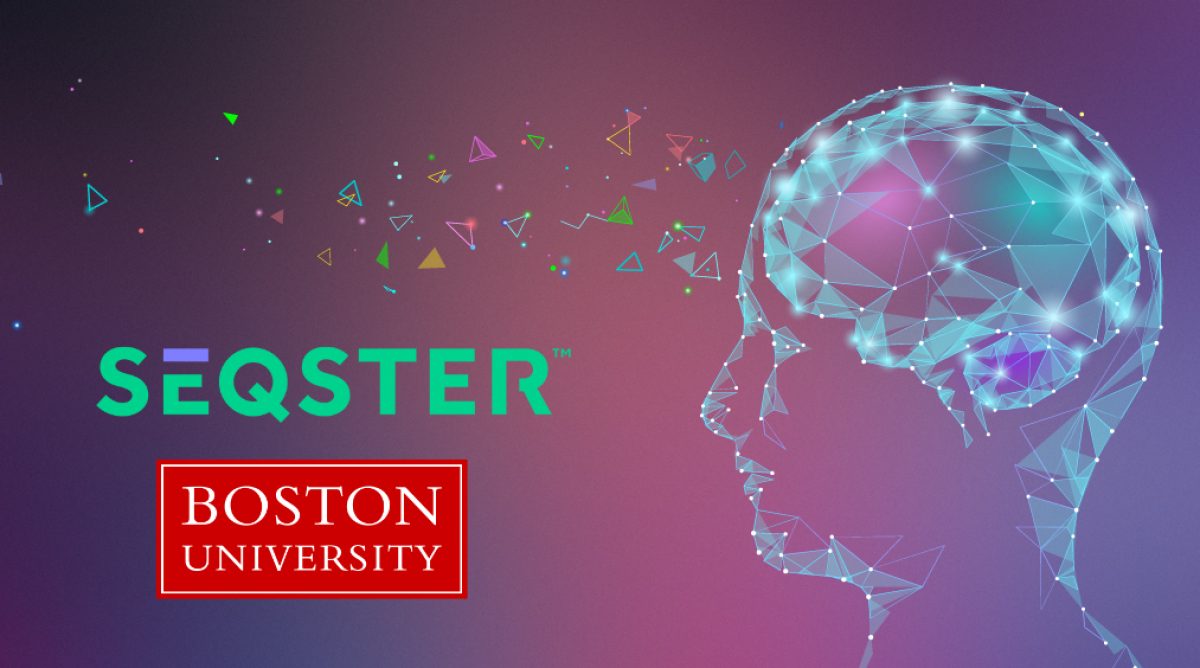Seqster Announces License of SRPTM to Boston University for Alzheimer’s Disease Study at Alzheimer’s Association International Conference® (AAIC) 2019

Seqster Research Portal Enables Study Participants to Instantly Collect & Share Medical Records and Device Data with Researchers
SAN DIEGO, July 12, 2019 -- Seqster, the leading consumer-mediated health data interoperability platform, today announced the expansion of their partnership with Boston University (“BU”) for the use of Seqster Research Portal (“SRPTM”) as the solution for streamlined patient recruitment and consent at the Alzheimer’s Association International Conference® (AAIC) 2019. Boston University will use Seqster’s SRP for their Alzheimer’s Disease Center (“ADC”) Cohort Digital Technology Study to overcome the long-standing data collection hurdle for Alzheimer’s clinical trials, enabling the rapid acquisition of multiple data sources in an intuitive longitudinal view while accessing medical records directly through SRP.
The expanded partnership empowers BU to significantly expedite Alzheimer’s disease research by improving patients’ access to their clinical data. This study is looking at the feasibility of using wearable technology to detect differences between cognitively normal, mild cognitively impaired, and Alzheimer’s disease participants. The devices will be used in combination with smartphone applications to gather participants’ lifestyle data, which contribute to the understanding of indicators of cognitive impairment and Alzheimer’s disease. Seqster’s nationwide coverage of health systems, hospitals, and clinics as well as custom data visualizations boost the participant experience and monitoring, and thus enhance the recruitment and retention of Alzheimer’s patients.
“We are using the Seqster platform for our digital brain health study through the Alzheimer’s Disease Center,” said Rhoda Au, Ph.D., Principal Investigator for the study and Professor of Anatomy & Neurobiology, Neurology and Epidemiology at Boston University Schools of Medicine and Public Health. “Seqster’s SRP allows the aggregation of data collected from multiple medical records (EHR) plus devices used in the study (e.g., Apple, Fitbit, Withings, Garmin) as well as providing our research team longitudinal health data without requiring participants to fill out long health history questionnaires.”
Bill Gates recently wrote about the unexpected way we might one day diagnose Alzheimer’s Disease using digital technology, not medicine, to identify individuals years before they start to develop mental decline. With the support of Amazon CEO and Founder Jeff Bezos, they have committed over $30 million for the Diagnostics Accelerator to advance the discovery of digital biomarkers. The Seqster technology allows researchers like Dr. Au to bring all the data together in a common form to help understand the mechanism of disease. Digital biomarkers have the potential to add significant value to clinical trials, reach broader swaths of the population, empower patients and caregivers, and greatly improve treatment outcomes.
“Without the right clinical trials there can be no cure for Alzheimer’s disease. Collecting longitudinal participant data is now the greatest obstacle to developing the next generation of Alzheimer’s treatments," stated Ardy Arianpour, CEO and Co-Founder of Seqster. "Our proprietary SRP platform significantly decreases the time, friction and cost of importing Real- World Data (RWD) and Real-World Evidence (RWE) with a direct chain of custody to any clinical study. Seqster is proud to expand our partnership with BU and offer support in the fight against this debilitating disease.”
Approximately 5.8 million Americans are living with Alzheimer’s and there are 16 million family caregivers.* Health care, long-term care, and hospice care for people with Alzheimer’s and dementia cost about $290 billion in 2019.*
